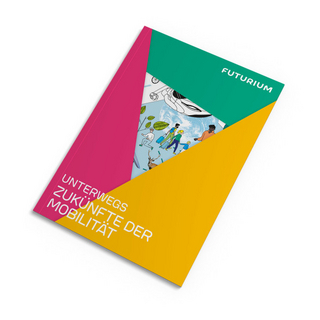
What possible futures are conceivable for mobility in African metropolises?
Asimeng, TheodoreExternal Publications (2022)
in: On the Move - Futures of Mobility, Berlin: Futurium
ISBN: 978-3-00-070810-7
Information
In many African cities, privately operated mini-buses, motorbike taxis and auto-rickshaws are the main means of public transport. They are flexible, inexpensive, and also cater to the needs of within those vast parts of of the city neglected by official public transportation options. But these unregulated services often have drivers who go too fast and take lots of risks, thereby contributing to some of the highest traffic accident rates in the world. Over the years, several metropolitan areas have tried to solve the problem by introducing bus rapid transit systems-with little success, however, because of high costs and resistance from informal operators. But the problem could also be approached differently, for example by means of the "reverse product life cycle" concept. The idea behind this is to progressive improve existing informal transport services until a new regulated mass transport services is developed. But Africa`s mobility of the future will also be shaped by the rising demand for private cars. Until now, old used cars that failed to meet strict emission standards of the Global North were imported cheaply from Europe, Asia and North America. But some African countries have started introducing fines to prevent people from buying old used vehicles, although that`s not enough. We need to expand the nascent car industry in Africa and produce more locally manufactured, clean cars for the African market. In the future, even the rich car-producing countries, such as Germany and Japan, will have to dismantle and scrap their own used vehicles locally.

